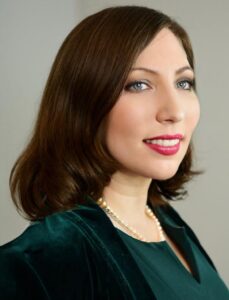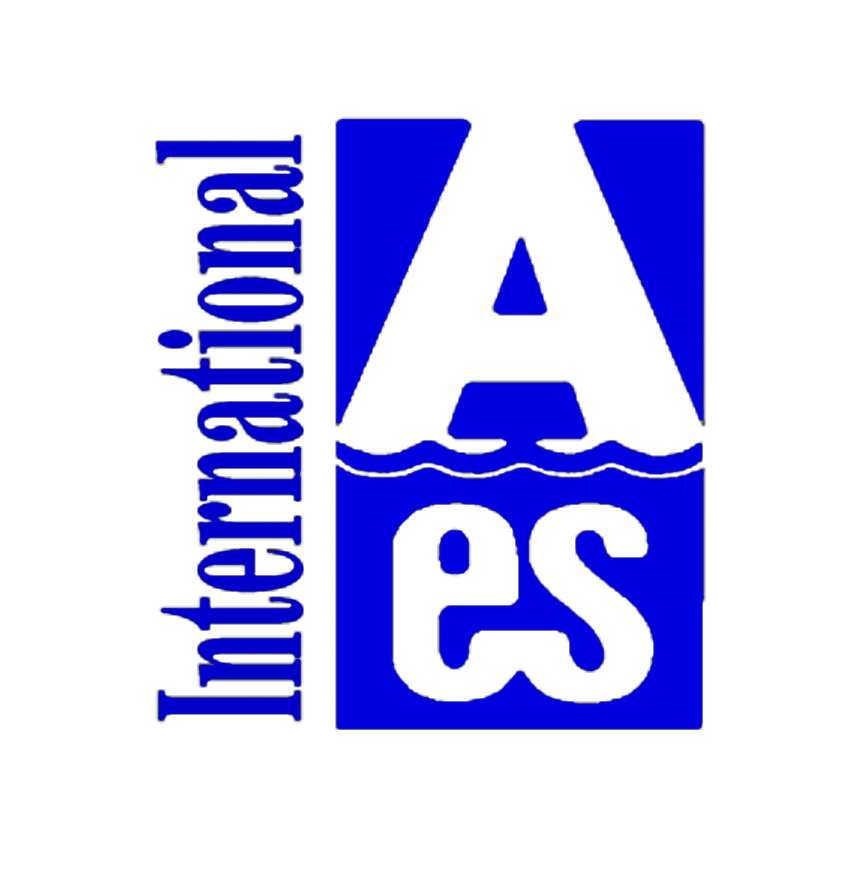Dr. Olga Bespalova

Dr. Olga Bespalova
Dr. Olga Bespalova is an Economist at the International Monetary Fund (IMF) headquarters in Washington, DC., where she applies her expertise in the Quantitative Studies and Methods (Econometric Modelling and Forecasting) to advance macroeconomic research, analyze macroeconomic developments, and formulate policy advice while supporting the mission of the IMF to further international monetary cooperation, encourage the expansion of trade and economic growth, and discourage policies that would harm prosperity. Olga joined the IMF while finishing her Ph.D. dissertation on “Forecast Evaluation in Macroeconomics and International Finance” at George Washington University, where she had the privilege of working with Professors renowned in the fields of Forecasting, Macroeconomics, and International Finance. Now, being an IMF economist, she continues to research in these fields to support global macro-financial stability through improving forecasting methods, monitoring financial soundness indicators, credit and business cycles, estimating growth-at-risk, and assessing reserve adequacy and external balances. Her recently published IMF papers focus on economic growth, inflation, financial sector regulations and stability, macro-financial linkages, reserve adequacy, and fintech. At the IMF, Olga is a member of working groups on macro-financial issues, fintech, and a Big Data community. She is also a member of the International Institute of Forecasters and several other reputable Economic Associations in the USA.
If you recall, what influenced your decision to become a member of the International Atlantic Economic Society?
I learned about the IAES around 2014 as a Ph.D. candidate at GWU’s Economics Department. The IAES provides excellent networking and knowledge exchange opportunities with a membership of accomplished economists representing academic institutions, international organizations, and government bodies worldwide. I was honored to have been invited to judge the Best Undergraduate Paper competition in 2015. The IAES allows me to stay current on the latest research and policy developments in my fields and share my research findings at conferences. I plan to attend the 96th International Atlantic Economic Conference in Philadelphia in October 2023. My goal is to increase my engagement with IAES members and foster research collaborations that contribute to advancing global macroeconomic stability and promoting cooperation across the Atlantic. I also enjoy reading the Atlantic Economic Journal and International Advances in Economic Research. I am preparing two papers for submission to these journals and would welcome the opportunity to peer-review the work of others.
What types of projects/research are you currently working on and what inspired/motivated you to pursue these interests?
In my research, I utilize my expertise in macroeconomics, international finance, and quantitative methods to enhance methods of econometric modeling and forecasting, informing policymakers on the ways to detect macro-financial vulnerabilities, analyze linkages between realm monetary, financial, external, and fiscal sectors, and preserve macro-financial stability. My current research focuses on Latin America and the Caribbean (LAC) region and the USA although its approaches and insights can benefit economists worldwide.
Another research interest I have is using Google Trends and other high-frequency indicators in forecasting models. I already demonstrated their benefits for modeling and forecasting tourism arrivals, using the case of Aruba. I have also been working on enhancing ways to produce and evaluate leading macroeconomic indicators and early warning indicators of financial crisis episodes, including textual analysis of the central bank communications, and results of the qualitative surveys. I am currently extending my dissertation research on this subject to several surveys of the US economy, showing their benefits for predicting movements in the US real output and consumption. In another paper related to this area, I investigate the predictability of currency crisis episodes.
While at the Fund, I also became zealous about advancing financial sector policies to promote and analyze its linkages with the other sectors of the macroeconomy and encourage macro-financial stability. Already having utilized the growth-at-risk methodology to analyze macro-financial linkages in three countries, I am now writing a paper highlighting its forecasting and policy benefits, with a broad application to the LAC region. I am also expanding my recent work on inflation drivers to a wider set of LAC countries.
What advice would you give to someone who is considering entering your line of work/field of study?
The role of the Economist at the IMF is highly competitive. Only a couple dozen from thousands of applicants worldwide join the Fund every year. Getting the Economist job offer from the IMF requires years of hard work, preparation, and dedication. To qualify for a pool of applicants, one usually must have a Ph.D. in Economics from a reputable university, have written several research papers, and know statistical software and programming languages. Proficiency in foreign languages other than English, especially those recognized as official by the United Nations, is also an advantage. Once short-listed and chosen for a panel interview, one must prove strong knowledge of Macroeconomics and International Economics and familiarity with the IMF policies and flagship publications (i.e., World Economic Outlook, Financial Stability Report, and Fiscal Outlook). Finally, once lucky to join the Fund, one must excel in independent research – from collecting data to coding in statistical software, analyzing results, and writing papers – as well as in teamwork and collaborative projects. IMF economists are expected to continue expanding their knowledge through many internal training programs and seminars, present their research, and comment on the documents written by peers. To those still in college, I suggest taking a heavy load of math, statistics, and economics courses, including those offered by the IMF through edX, and learning at least one foreign language. Finally, remember that being Economist at the IMF is not just a job but a passion, a career, and a unique lifestyle. This position entails extensive business travel and frequently demands additional work hours. However, the opportunity to interact with influential government officials and financial regulators worldwide, and the ability to shape their policies through research, analysis, discussions, and presentations, offers an immensely gratifying experience that is hard to beat.
Going forward, what other projects/research are you planning to or hoping to pursue?
As a member of the IMF Fintech group, I am also working on the issues of digital revolution and cross-border payments integration in LAC countries. Combining my passion for studying fintech innovations with my interest in using Google Trends statistics, I want to build a panel dataset measuring crypto investments worldwide. My long-term goal is to author a book on forecasting in macroeconomics and international finance, summarizing the latest advances in the field and providing practical guidance to both students and professionals alike.
What’s your favorite hobby?
I love traveling, both domestically within the USA and internationally. When visiting a new place, I like to attend local art galleries and museums, see a theatrical show or a concert, eat in an authentic restaurant, and visit a natural habitat scene specific to that region. I also enjoy learning languages, continuing to polish my Spanish, and taking on French as a new challenge. Finally, I want to stay physically active – walking, swimming, Latin dance lessons, and playing badminton give me the necessary exercise and help to relax. Finally, I like books, both in hard copy and audio formats. My latest reading is “Constitution of the United States and Other Classic American Documents” by Fall River Press.

